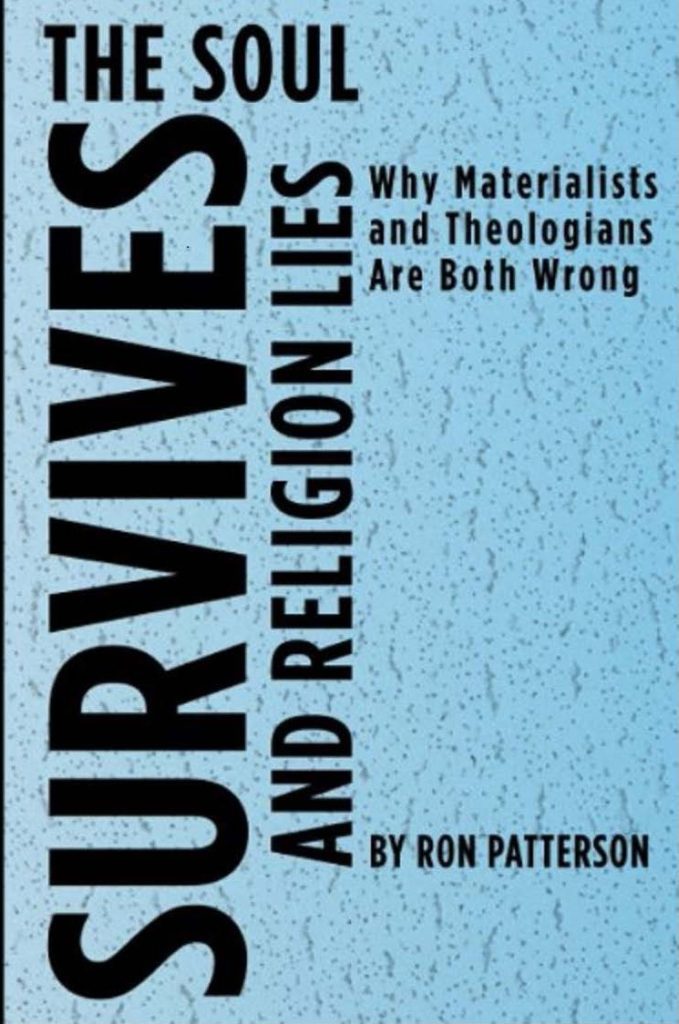Is There a Spiritual Path Without Religion? Exploring a New Perspective
Are you longing for a deeper understanding of your purpose but feel limited by the constraints of traditional religion? Non-religious spiritual exploration books offer us an alternative approach to understanding the meaning of it all. As an alternative to dogmatic approaches to spirituality, spirituality without religion books offer a path designed to lead you to a sense of purpose and spiritual connection in life.
In Ron Patterson’s book, this question is examined lucidly and thoughtfully, prompting you to consider whether there are paths for our spiritual journeys that centre upon reason. So, come along as we examine how spirituality without religion books are transforming the way we understand ourselves and the human experience.
What Does Spirituality Without Religion Look Like?
Spirituality does not have to be about incense, rituals, or deities. In books on spirituality that don’t reference religion and spirituality, authors such as Ron Patterson put forth the argument that spirituality could be a self-derived meaning; a deep exploration of one’s self through inward reflection and rational inquiry. This would appeal to a general audience looking for sacred spirituality books, which prioritize personal development over religious order. It is a mystifying way to embrace collective human experience, centred around awe, connection, or wonder. This experience of a higher consciousness that is unattached to a formal religion.
For example, think about the feeling of standing under a starry sky and marveling at the universe. The feeling of wonderment does not need a deity, holy spirit, or a religious book; this is a human experience that books that explore spiritual truth outside of religion can help draw upon the meaning behind. Patterson is suggesting that we examine ourselves and ask: what if there is spirituality without faith; what if what spirituality means is investigating ourselves and our existence in the cosmos – knowing that it is possible through thought, rather than through faith?
Why Non-Religious Spirituality Appeals to Modern Thinkers
Critical thinkers today can frequently feel the challenge of rigid religious frameworks and wanting something more than materialism. Books that discuss non-religious spiritual explorations can fill this gap, often creating frameworks that are rooted in evidence-based thinking. Books on secular spirituality, like Patterson’s, begin to step into questions about consciousness, morality, and purpose without supernatural assertions. They ask you to think about the questions: Is it possible to find meaning in a universe where laws of nature govern outcomes?
There is appeal to these types of works largely because they recognize an intelligence in their reader. They are asking us to consider; they are not asking us to believe. For example, non-religious considerations of higher consciousness often draw from philosophy, psychology, and science to examine how meaning is created by human beings. In Patterson’s book, he demonstrates with comparisons what it is like to try to create your own personal spiritual path, likening it to a ship charting its own course through unknown waters- with consideration based on reason, not tradition- as your compass.
How Secular Spirituality Challenges Traditional Beliefs
Books exploring spiritual truth without religion do not shy away from challenging deeply-held beliefs. They challenge “Why do we assume that spirituality requires a God, or a life after this one?” By probing these questions books about spirituality without religion invite you to reclaim spirituality on your own terms and at its best while being respectful and bold enough to proclaim to us that while religion gives incredible comfort and support, meaning can be located outside of these prescriptive frameworks.
Patterson’s work is different from other non-religious spiritual exploration books because it does not merely critique religion and spirituality; it provides a viable alternative. In a clear, logical, and philosophical manner it demonstrates how secular spirituality can provide a sense of purpose without the dogma. As such it should be considered an invaluable read for anyone that is curious about books on secular spirituality that muddle traditional thinking while remaining accessible and grounded.
Practical Steps to Explore Non-Religious Spirituality
Now where do we go to begin? Nonreligious spiritual books have all kinds of suggestions, usually involving mindfulness, writing, and time in nature, to promote a sense of interconnection. Patterson mentions starting with self-inquiry: which are the values that motivate you? When do you feel the most awe or most purpose in life? Following these self-inquiry questions, answered in books about nonreligious higher consciousness, will support readers to develop their own framework for a spirituality that does not rely on someone else’s authority.
Another practical step is finding communities of like-minded thinkers. This usually consists of online places, book clubs, or looking to join or sustain a discussion group of spirituality without religious books for peer support and perspective. Again, the engaging anecdote is to stretch one’s imagination, by asking: What if we viewed spirituality as a journey where things are always changing rather than unsettled? There is no relation to spirituality or evidence of feeling or experiencing awe when it does urge or address consistency.


